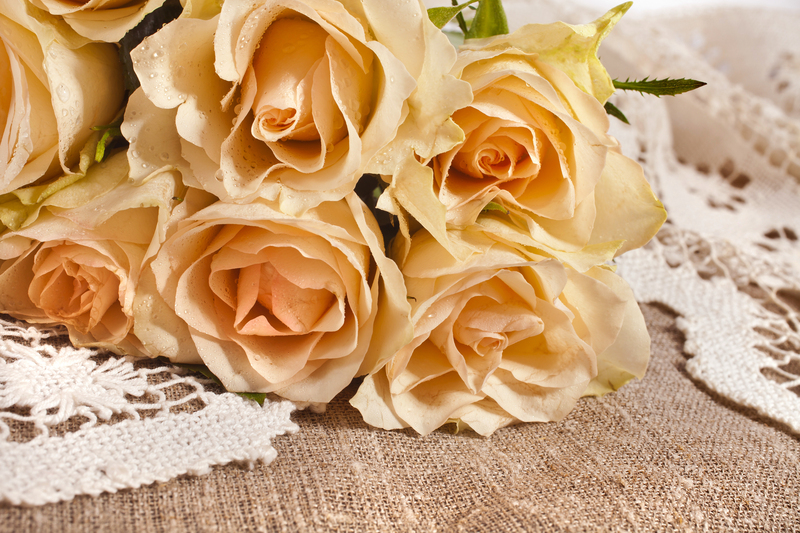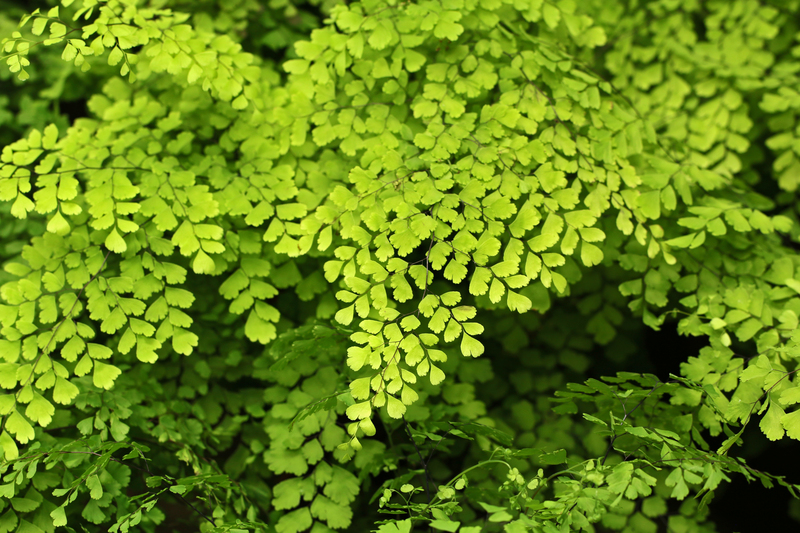New to Gardening? Here Are 9 Tips to Get Started
Posted on 01/06/2025
New to Gardening? Here Are 9 Tips to Get Started
Have you recently developed an interest in gardening but feel overwhelmed by where to start? Whether you have a sprawling backyard or just a tiny balcony, learning the basics of gardening can bring immense joy and a bounty of healthy plants. Gardening for beginners may seem complicated, but with the right guidance, you'll see it's not only easy but truly rewarding. In this comprehensive guide, we'll uncover the essential steps and top gardening tips for novices, ensuring your green thumb blossoms in no time!
Why Start Gardening?
Before we dig into the tips, it's helpful to understand why gardening is such a popular hobby, especially for beginners. Gardening offers:
- Stress relief by getting your hands dirty and connecting with nature
- Nutritious, home-grown produce for you and your family
- Exercise and fresh air from outdoor activity
- A fun, creative outlet and a rewarding sense of accomplishment
Now, let's take a look at the top beginner gardening tips so you can kickstart your plant-growing journey with confidence.

1. Assess Your Space and Sunlight
One of the very first steps for new gardeners is to get familiar with your available garden space. Is it a sunny backyard or a shaded balcony garden? The amount of sunlight your area receives is crucial for plant health.
- Sun-loving vegetables and flowers: Tomatoes, peppers, sunflowers, and most herbs need 6-8 hours of direct sunlight daily.
- Shade-tolerant options: Leafy greens, ferns, hostas, and impatiens can thrive in lower light.
Observe your chosen spot throughout the day. Chart out where sunlight lands and for how long--it will guide your plant selection. Don't forget to consider wind, proximity to water sources, and soil type as well for the best gardening setup.
2. Choose Easy-to-Grow Plants
When you're just getting started with gardening, pick beginner-friendly plants. These usually require less maintenance and have a higher success rate.
- Herbs: Basil, mint, and rosemary are not only easy to grow but also great for cooking.
- Vegetables: Lettuce, radishes, carrots, and green beans fare well for first-timers.
- Flowers: Marigolds, zinnias, and pansies provide vibrant beginner-friendly gardens.
Starting from seeds can be satisfying, but consider young seedlings or starter plants to guarantee faster, more visible progress, encouraging you to stick with your garden.
3. Learn About Your Soil
Understanding soil quality is a foundational gardening tip for novices. Rich, nutrient-dense soil supports plant growth, while poor soil struggles to deliver results.
- Soil texture: Is your soil sandy, clay-based, or loamy? Loamy is ideal because it retains moisture but drains well.
- Soil pH: Most veggies and flowers prefer a slightly acidic to neutral pH (6.0-7.0).
Get a simple soil test kit from any garden center. Amend poor soil with compost, organic matter, or pre-mixed garden soil to boost fertility--this is one of the smartest beginner gardening practices.
4. Start Small
Avoid the temptation to plant a huge garden right away. Keeping things manageable lets you learn gardening basics without becoming overwhelmed.
- Try container gardening or raised beds if you have limited space or poor soil.
- Even window boxes or small pots on a patio can yield impressive results!
As you gain confidence, expand your garden gradually. Remember, gardening for beginners is about learning and enjoyment, not perfection.
5. Master Watering Techniques
Knowing when, how, and how much to water your plants is crucial. Overwatering is a common mistake for novice gardeners, sometimes even more harmful than underwatering.
- Check soil moisture: Stick your finger one inch below the surface. If it feels dry, it's time to water.
- Morning is best: Water early in the day to reduce evaporation and prevent fungal diseases.
- Deep, not frequent, watering: Water thoroughly so roots grow deep and strong.
Each plant's watering needs can vary depending on weather, soil, and the type of plant, so observe and adjust as necessary. Mulching is another expert gardening tip--it helps retain soil moisture and reduces the frequency of watering.
6. Feed and Mulch Your Plants
Even healthy soil needs a nutrient boost from time to time. Here's how to keep your plants thriving:
- Fertilize: Use slow-release organic fertilizers or compost for a gentle but consistent food supply.
- Mulch: Spread organic mulch (like shredded leaves, bark, or straw) around your plants. It helps retain moisture, smother weeds, and regulate soil temperature--key gardening tips for beginners.
Applying mulch also improves the appearance of your garden, giving it a tidy, finished look.
7. Stay On Top of Weeds and Pests
Weeds compete with your plants for nutrients, water, and sunlight. Regular weeding is necessary for every new gardener.
- Hand-pull weeds as soon as they appear for best results.
- Organic mulch significantly reduces weed growth.
- Monitor plants daily for pests like aphids, snails, or caterpillars.
Choose eco-friendly pest controls such as neem oil, insecticidal soap, or encouraging beneficial insects like ladybugs into your garden. Learning to identify both pests and plant-friendly bugs is an important part of gardening for beginners.
8. Practice Patience and Document Your Progress
Gardening is a journey, not a race. Plants take time to germinate, grow, and bear fruit or flowers. Some days you'll encounter setbacks like droopy leaves or bug invasions--it's all part of the learning curve.
- Keep a gardening journal: Record planting dates, weather, varieties chosen, and what works (or doesn't).
- Celebrate small wins! A single bloom or your first harvest is a huge milestone for a beginner gardener.
Observing, recording, and reflecting on your gardening journey makes it more meaningful--and will help you improve year after year.
9. Keep Learning and Join a Gardening Community
Perhaps the most valuable beginner gardening advice is to stay curious. No gardener knows everything; there are always new trends, techniques, and plant varieties to discover.
- Join local gardening clubs, attend workshops, or participate in online forums for support and answers to your questions.
- Follow gardening blogs, YouTube channels, and read books specific to your climate and gardening goals.
- Ask neighbors or visit local nurseries for tips--they understand your region's conditions best.
Communities offer invaluable encouragement and shared learning, making your gardening journey far more enjoyable and successful.
Bonus Tips: Common Gardening Mistakes to Avoid
To make your experience even smoother, here are some extra garden beginner tips on what (not) to do:
- Don't over-fertilize: Too much can burn plants. "A little goes a long way."
- Don't crowd plants: Follow spacing guidelines on seed packets to ensure proper air flow and healthy growth.
- Avoid using chemical pesticides: Seek organic, earth-friendly solutions.
- Don't neglect regular maintenance: A few minutes every day can prevent larger problems.
Implement these suggestions, and you'll sidestep the most frequent frustrations beginner gardeners face.
Gardening Tools for Beginners
You don't need a shed full of expensive tools to start gardening. Here's a basic list for new gardeners:
- Trowel (for digging small holes and planting)
- Pruners (to trim and shape plants)
- Watering can or hose
- Gardening gloves (to protect your hands)
- Spade or shovel (for larger digging jobs)
- Garden fork (to loosen soil and remove roots)
Over time, you'll discover additional tools that suit your needs, but these basics will see any novice gardener through their first season.
Gardening Throughout the Year: Seasonal Advice for Beginners
Understanding the gardening calendar is key to long-term success. Here's a simple breakdown for starter gardeners:
- Spring: The main planting season for many crops and flowers. Start seeds indoors and transplant after danger of frost. Prune and prep beds.
- Summer: Water and mulch regularly. Harvest crops, deadhead flowers, and keep weeding.
- Fall: Plant bulbs, clean up spent plants, and begin composting. Prepare beds for winter.
- Winter: Plan next season's garden, clean tools, and order seeds. Indoor gardening (such as herbs) is possible with the right light.
Following these seasonal routines ensures continuous learning and steady progress in your gardening skills.

Frequently Asked Questions (FAQs) for New Gardeners
How much time does gardening require?
Starting gardens need just 15-30 minutes a day, especially if you keep your first plot small. As your garden grows, so will your involvement, but daily attention (watering and checking plants) is an excellent habit for beginners.
Should I use seeds or starter plants?
Both are great options. Starter plants offer faster results and are less work for beginners. Seeds are economical and teach patience and the full plant life cycle. Try a mix for the best experience.
What's the easiest vegetable to grow for beginners?
Lettuce, radishes, and beans are very reliable for starter gardens. They're quick to sprout, require minimal care, and provide tangible rewards within weeks.
How do I know if my plants are getting enough sunlight?
Check sunlight patterns (see tip 1), and monitor plant health: leggy, pale plants often indicate a need for more sunlight. Move containers as needed or choose shade-tolerant varieties if your space is limited.
Conclusion: Begin Your Gardening Adventure Today!
Embarking on your first gardening journey is an exciting and enriching experience, filled with discovery, learning, and a sense of connection to the earth. By following these nine essential gardening tips for beginners, you'll avoid the most common pitfalls and set yourself up for a lush, thriving garden in any space.
- Assess your space and sunlight
- Choose beginner-friendly plants
- Get to know your soil
- Start small and simple
- Water wisely
- Feed and mulch
- Control weeds and pests naturally
- Record progress and be patient
- Lean on gardening communities for support
The journey may have its challenges, but the satisfaction of nurturing life from seed to harvest or blossom is unmatched. So gather your tools, get your hands in the soil, and enjoy the wonders of your very own garden--even if it's just a single pot of herbs on your windowsill!
Happy gardening! For more inspiration and practical advice, bookmark this guide and revisit it throughout your gardening season.
Latest Posts
Shielding Your Garden from Excessive Wind Blasts
Harnessing Heights for Horticulture: Vertical Gardens
Container gardening: Growing bounties in limited spaces
Blissful Backyards: Unlock the Secrets to Stunning Garden Seating Areas

